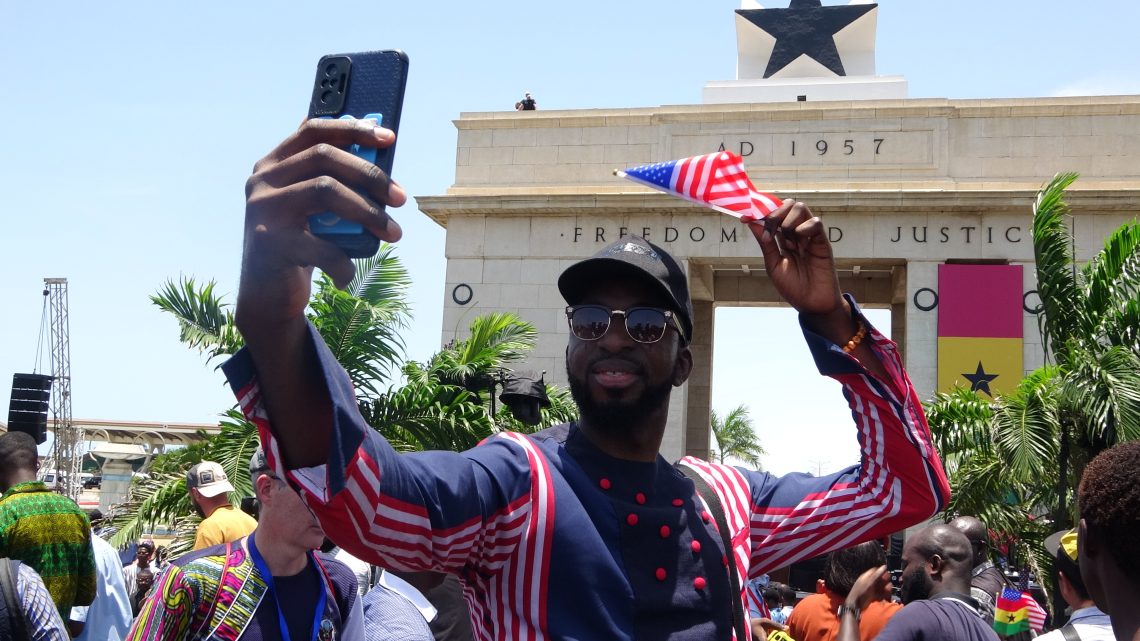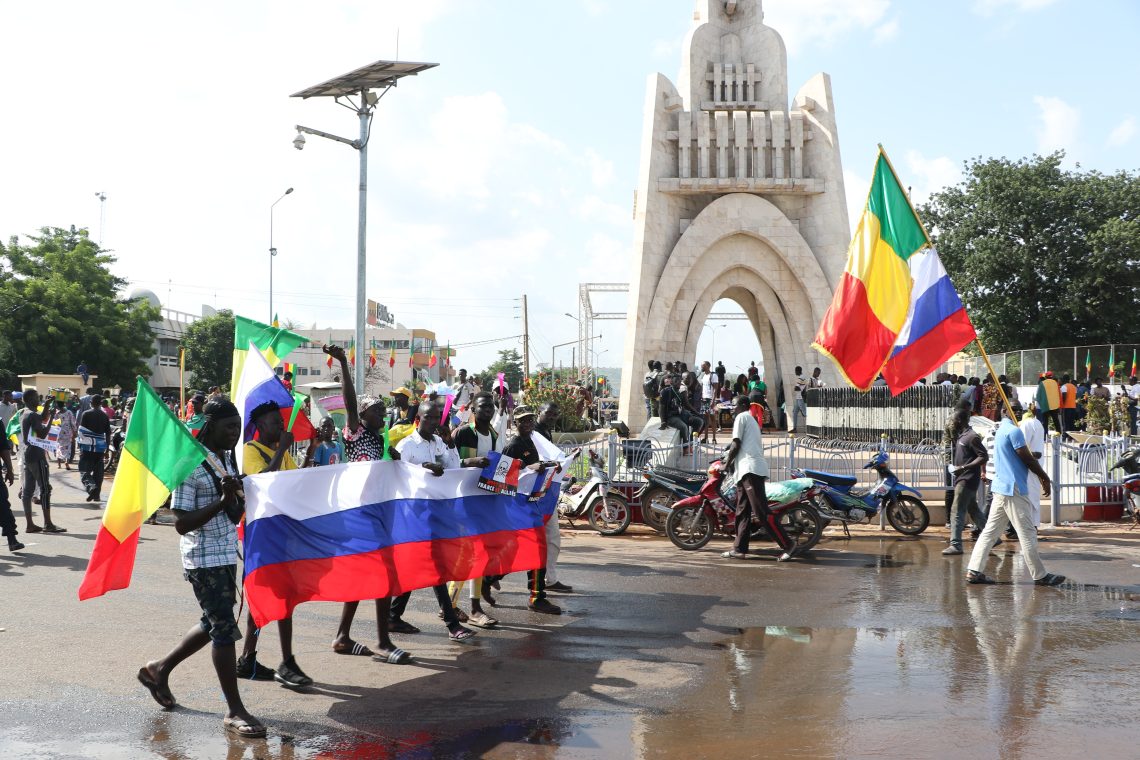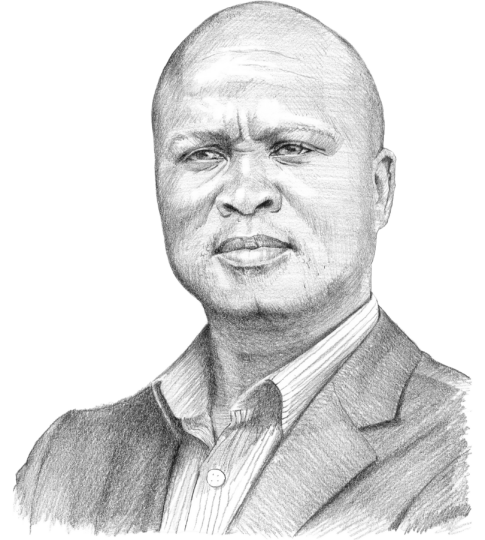A new cold war in Africa
The U.S. recognizes Africa’s strategic significance but its influence on the continent may be compromised by political polarization.

In a nutshell
- Africa’s strategic importance is set to increase
- The U.S. aims to counter Chinese and Russian influence
- African countries will likely engage with all sides
As Cold War trends reemerge, Africa has become a key stage for the strategic competition between actors with varying and sometimes irreconcilable interests. The geopolitical relevance of the continent is set to increase dramatically. Its population is booming, and its mineral resources will be in high demand for the green energy transition. Moreover, the African bloc looks poised to play a determining role in multilateral institutions.
However, the political landscape has significantly changed since the second half of the 20th century. African countries are now better equipped to reap the benefits of this systemic competition.
The U.S. strategy for Africa
Africa has never been a priority for American policymakers. While the Biden administration is no exception, the U.S.’s 2022 Strategy Toward Sub-Saharan Africa clearly recognizes the relevance of the continent within the current fragmenting world order.
The document highlights three important figures: Africa will account for 15 percent of the world’s population by 2050; it holds 30 percent of the world’s reserves of critical minerals; and it makes up 28 percent of the United Nations voting groups. But the rationale for U.S. engagement in the region is also based on the need to counteract the expanding influence of other actors, namely China and Russia.
In recent decades, U.S. policy for Africa has been determined mostly by security concerns. Especially after the attacks of September 2011, allegiances across the continent were shaped by the war on terror. Washington has maintained a strong security footprint on the continent, including a permanent military base in Djibouti. It also has several military facilities in East Africa, West Africa and the Sahel region, where it plays a critical, albeit discreet, role in counterterrorism operations.
Both Washington and Brussels would like African countries to unequivocally condemn Russia’s invasion of Ukraine.
When compared with other actors like the European Union or China, the U.S. approach has been characterized by trade and investment rather than development assistance or loans. Instead of broad agendas, Washington relies on specific programs: the 2000 African Growth and Opportunity Act, the 2003 President’s Emergency Plan for AIDS Relief, the 2013 Power Africa initiative, or the more recent Prosper Africa initiative designed by the Trump administration.
The new strategy reaffirms declarations from 2017 when the National Security Strategy named China and Russia as actors “attempting to erode American security and prosperity.” The document states that U.S. rivals are employing nonmilitary tools to advance their influence and interests on the African continent.
The U.S. strategy for sub-Saharan Africa has become much more comprehensive, and now includes four far-reaching goals. The first is fostering openness and open societies, in accordance with the international liberal world order led by the U.S. The second is to deliver democratic and security dividends, based on the idea that democracy is exportable through “positive inducements and punitive measures such as sanctions.” The third is to advance pandemic recovery and economic opportunity. Finally, the fourth target is to support conservation, climate adaptation and a just energy transition.
More on Africa:
Unity eludes Southern Africa over Russia’s war
The EU’s imperfect choices on migration from Africa
Europe’s energy switch may boost African producers
In light of these ambitious goals, several factors will be critical in shaping U.S. relations with African countries.
Much depends on the future of the Africa Growth and Opportunity Act, set to expire in 2025. Africa accounts for only 1 percent of U.S. foreign trade. The EU and China trade much more with the continent. To compete with its rivals and contribute to prosperity across the continent, the U.S. will have to design a more effective and consensual trade framework, at a time of rising protectionism.
Given that so many African countries face unsustainable debt levels, engagement with the region will also depend on the capacity of external actors. Financial institutions but also key lenders like China will play an important role through debt readjustment and forgiveness. Beijing could attempt to turn this leverage into a competitive advantage, reducing American influence.
The war in Ukraine is also expected to affect U.S. relations with Africa in the short to medium term. Both Washington and Brussels would like African countries to unequivocally condemn Russia’s invasion of Ukraine. But the recent backlash against Western presence on the continent suggests that such an alignment will be difficult to secure.

Strategic competitors and rivals
The competition for influence in Africa reflects the broader global context. While their interests may not always converge, the U.S. and the European Union both want to maintain a Western-led liberal order. They will likely cooperate in some areas, like democracy and climate, and compete in some others, like trade.
China, in turn, could pose a threat to American interests and influence. In Africa, Beijing has mostly focused on economic cooperation by reducing Africa’s infrastructure deficit, buying African commodities and providing credit facilities. But its influence and goals go well beyond the economic sphere. Chinese leadership aims to change the international system from within. Besides joining Beijing-led institutions like the Asia Infrastructure Development Bank, African countries are increasingly aligning with China’s positions on international institutions like the UN.
The U.S. has long recognized that China’s “don’t ask, don’t tell” policy toward African regimes gave Beijing a strategic advantage. But Washington probably failed to grasp the extent to which the Chinese model would prove attractive to African leaders. It also underestimated the political efforts deployed by China to increase its influence in Africa under the rule of President Xi Jinping through the Communist Party’s International Liaison Department.
Russia, like China, competes with the U.S. and the EU for influence in Africa. Russia is not a newcomer there, and many members of the continent’s military and political elites were trained in the Soviet Union. But Moscow’s new strategy had its grand diplomatic jump start in 2019, with the first Russia-Africa summit. North Africa especially has become an important strategic region for Moscow. Moscow sees the region, which borders NATO’s southern flank, as a strategic location to destabilize Europe.
The West will likely find it difficult to live up to its rhetoric.
The Kremlin’s approach is mostly, though not exclusively, based on military cooperation. It is the main provider of military equipment to African countries (accounting for 44 percent of the continent’s arms imports). While Russia has traditionally maintained close relations with Algeria, Egypt, Sudan and Zimbabwe, it is now expanding its influence into the Central African Republic (C.A.R), the Democratic Republic of the Congo, Mali and Uganda.
In some countries, like Mali and the C.A.R., Moscow has used the Wagner Group as a proxy to secure its interests. Russian mining companies are also active in several countries in the region, including Angola, the C.A.R., Guinea, Namibia and Zimbabwe.
Scenarios
The forces challenging Western influence in Africa are nationalist and reject the idea of a post-sovereign world order. Western actors tend to underestimate the potential appeal of the alternative models that China and Russia represent. It is no accident, for example, that those protesting France’s presence and influence in Mali, Burkina Faso or the DRC often carry Russian flags or photos of President Vladimir Putin.
The most likely scenario for the American strategy in Africa is one of fragmented influence. The approach will likely lead to engagement with more African countries, but many developments could compromise its success. Africa is not a priority for Washington, and U.S. hegemony is being challenged on multiple fronts. Polarization and the political crisis in the U.S., expected to deepen ahead of the 2024 presidential elections, will hinder consensus in foreign policy. Moreover, the goals set by Washington – and by the EU – are perceived by some as being disconnected from African needs and priorities. The West will likely find it difficult to live up to its rhetoric, and cooperation with authoritarian regimes across the continent is expected to continue.
In parallel, China and Russia are also faced with critical challenges. In China, population decline, and economic slowdown may lead to an economic crisis with far-reaching consequences, both internally and internationally. Russia, in turn, may be forced to reduce its presence on the continent (including through proxy actors like the Wagner group). While demand for arms and security cooperation will remain, Russia’s intervention in the Sahel is not expected to stabilize the region and may come to be perceived as a failure.
African countries will claim their right to remain neutral within this new cold war logic, engaging with various players according to their specific interests and needs.









